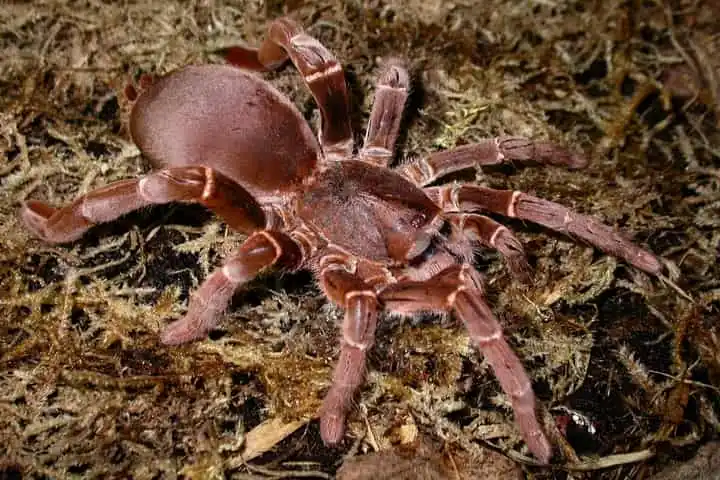No one thought that studying of poison would one day help in understanding pain and that is what has emerged as researchers examining king baboon spider’s venom came to know the reason for humans feeling chronic pain and what can be its remedy according to an article in sciencealert.com.
The king baboon spider or Pelinobius muticus which is found in Kenya and Tanzania has a bite which is not fatal but results in lot of pain and itchiness which can go on for days together. Thus people are cautioned to keep a healthy distance from this creature.
Working on these spiders will also help in finding a treatment for their bite.
The team of scientists investigated the venom in great detail and this they did by breaking down and studying each of its individual ingredient which come together to create it. In the course of their examination they discovered Pm1a, a peptide. This is known to manage responses of dorsal root ganglion — a group of sensory neurons.
The function of Pm1a is to make the brain feel pain through the central nervous system and in the case of the spider’s bite it causes pain neurons to constantly fire again and again, resulting in intense reaction from a spider bite.
Also read: Research reveals secret of Hydra's immortality
In the laboratories tests were on conducted on mice with synthesised version of Pm1A and it was confirmed that it produced hyperexcitability in nerve cells through three channels. These channels are sodium, potassium, and calcium, all of which help neurons manage responses to external stimuli, like pain.
Details of this research have been published in PNAS — Proceedings of the National Academy of Sciences — a peer-reviewed multidisciplinary scientific journal.
Specifying details in their published paper, the researchers wrote: "In summary, we show here that a single venom peptide can modulate three major determinants of neuronal excitability. The coordinated modulation of excitatory and inhibitory ion channels involved in pain propagation may represent an economical and effective defense strategy in pain-inducing defensive venoms."
In the mice it was found that the presence of Pm1a produced increased sensitivity to pain through repeated firing of the neurons registering pain. This detection was backed up by a mathematical model of the synthetic peptide that the researchers put together that showed how it interacted with nerve cells.
The scientists noted that this hyperexcitability displayed by the mice was quite near and close to the hyperexcitability known in some people with certain types of chronic pain issues. This looked promising in terms of avenues of exploring treatment of nerve damage.
Also read: Tiny-brained spider amazes scientists with its web designs
Though there is scope to learn and explore more about the precise details of how P1ma interacts with other mechanisms and chemicals in the body, quite a bit is now known about why the king baboon spider bite is so painful. This like many other cases has helped us gain insight about our own biology and means to improving our health.
Talking to Inverse, the researchers said: "Detailed studies directed to determine the specific molecular interactions of Pm1a with its many targets may inform the development of pharmacological analogs that could decrease excitability specifically in pain neurons.”




















